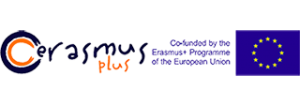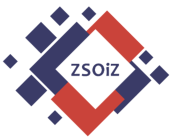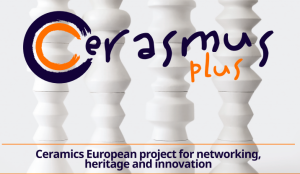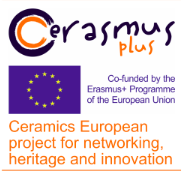Objectives
- This forum has 31 topics, 12 replies, and was last updated 5 years, 9 months ago by .
-
- Forum
- Topics
- Last Post
-
-
O1 Needs assessment

As project first step, the partners performed a preliminary field analysis to let ceramics key actors and stakeholders explore their needs for competences for assuring sector development through networking, protection of immaterial heritage, innovation. The field analysis has been carried out by realizing a survey among ceramics key actors and stakeholders. To do this, a questionnaire has been developed and administrated to about 50 ceramics craft key actors and project stakeholders' representatives for every country involved in the project. The structure of the questionnaire has been developed after specific preliminary contacts with relevant stakeholders in order to collect information about ceramics sector's needs for competences. The questionnaire intended to determine the necessary skills for a ceramic professional and it has been structured into six blocks: ▪ General information defining the profile of the respondent. ▪ Professional skills, the abilities required to perform a position in the ceramic sector. ▪ Artistic and craft skills, related to the art, history and tradition of ceramics. ▪ Functional skills, defined as those that relate to specific professional functions. ▪ Transversal skills, those that relate to other different, transversal and multidisciplinary skills. Management skills, the skills of those who exercise leadership or supervision roles. Each block has been structured including a group of skills in order to define a profile of the single skill to be valued by the intervieews. The questionnaire administrated is showed in Annex 01. Target groups have been reached through direct contact from partnership organisations (national and European networks), networking with craft associations and stakeholder organizations already cooperating with the partnership. Project n. 2017-1-IT01-KA202-006158 8 After collecting survey answers, the partners worked on data systematisation through the realisation of National reports, documenting the results of the analysis country by country (Annexes 05 to 10). Then, National reports have been analysed and the collected data allowed the realisation of the present Transnational report, including the results of the assessment of training needs in the ceramic sector at European level. On the basis of these data, starting from November 2018, the partnership will build a model including specific curricula and reference educational resources for initial and continuous VET, focused in work based learning, aimed at letting ceramics professionals gain transversal and professional competences for the improvement of sector “value chain”, of models and means for valorization of urban environment, and for supporting business start-up. - 2
- 5 years, 9 months ago
-
O2 Networking platform

Design and implementation of on-line virtual environment addressed to ceramics key actors and stakeholders which allow them to discuss online the main issues emerged from the assessment stage and to participate in a permanent forum for assuring closer cooperation and links; then to participate in a participatory planning and testing process of specific curricula for initial and continuing VET, focused in work based learning, aimed at letting ceramics professionals gain transversal and professional competences for the improvement of sector “value chain”, of models and means for valorization of urban environment, and for supporting business startup. - 2
- 5 years, 9 months ago
-
O3 Educational Model – Training Curricula

Training curricula, for IVET and CVET, on the topics of Tradition and Innovation; Urban environment and Business start ups. - 26
- 5 years, 9 months ago
-
O4 Guidelines for the ceramic sector development

Ceramics, one of the oldest forms of art and crafts, is facing major challenges such as global competition of cheaper products, the risk of loss of knowledge about skills, the position on the job market, workers skilled only in one field of ceramics or, on the contrary, a lack of qualified employees for specific fields of the ceramic industry, etc. This is happening although new domestic and international committees and organizations are being founded and various projects for the support of crafts are being organized. The goal of The Cerasmus+ Project is to reverse this process through promotion, development and improvement of practical training of students in IVET and CVET courses through projects such as networking among local/territorial and international partners, respecting traditions and innovating them, sharing experience etc. This should be done not only with regard to the needs of ceramic businesses and the industry but also with the aim to preserve traditional crafts as our cultural heritage. Moreover, one of Cerasmus+ goals for future years is to become as well-known as Erasmus+ and to focus its activities on a sustainable development of the ceramic craft. One step on the way to heritage engagement and increasing and updating technical skills, which are necessary for the ceramic craft and industry, is to formulate the policy of implementation, management and assessment of IVET and CVET pilot courses. This is the purpose for which the following methodology is designed. While using this handbook, it is vital to keep in mind the differences between individual countries and to see this document as a set of recommendations. - 1
- 5 years, 9 months ago
-
O1 Needs assessment
- Oh, bother! No topics were found here.
- You must be logged in to create new topics.
